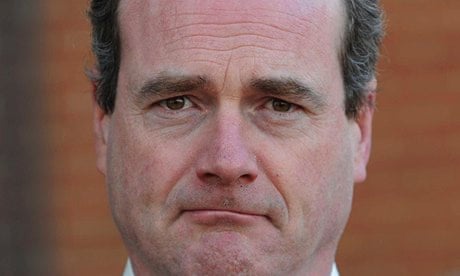Two lawyers have received more than £3m between them to advise and represent the government in court.
A freedom of information response to the Guardian revealed that one of the lawyers, first treasury counsel James Eadie QC, who regularly plays the legal role known as the "treasury devil", has received more than £2.2m over the past three years for representing the government, including at the Leveson and Francis inquiries.
First treasury counsel Jonathan Swift QC has been paid £975,075 over the same period for representing the government over the right to protest in Parliament Square and the freedom of information case relating to the release of private correspondence between Prince Charles and government ministers.
A variety of civil and European litigation work undertaken by the Treasury Solicitor's Department over the same three-year period has cost almost £56m in total.
The department said that, on occasion, cases involving the "most complex legal challenges" meant using "the most experienced barristers", which resulted in the best outcome for the taxpayer. It added that in the past three years such costs had reduced.
But critics contrasted the payments with justice secretary Chris Grayling's insistence that the legal aid bill must be slashed by 17.5%. Grayling has said legal aid lawyers should not be paid more than the prime minister's salary of £142,000.
Legal aid lawyers who have been campaigning against the cuts Grayling is imposing, expressed dismay at the discrepancy between the fees available for their work and the money paid out to the lawyers the government uses to represent it. "This shows that when the government wants something, it'll pay," said Nick Armstrong, a barrister at Matrix chambers. "The changes will cost a lot more than they save, but the government is happy to pay because it wants to be seen to be tough on unpopular groups."
A Ministry of Justice spokesman said: "We have an excellent tradition of legal aid and one of the best legal professions in the world. But we cannot close our eyes to the fact that, at around £2bn a year, legal aid is costing too much. It is right that reductions to the legal aid budget should include the highest earners who, for example, receive more than the prime minister or a top judge. We want to ensure the limited money we have is concentrated on those cases and people who need it most. Even after these reforms, we will still have one of the most generous legal aid systems in the world."
Eadie is based at Blackstone chambers which, on its website, says he represents the government in judicial reviews and public law challenges "involving the most cutting-edge human rights issues", adding: "Peers attest that he 'is involved in every big case' and laud him for his 'commanding presence' and 'impressive intellectual versatility'." Swift is based at 11 King's Bench Walk chambers and is described as "awesomely bright" and "an excellent bet for heavyweight cases ... an encyclopaedic ability to remember detail"..
Eadie and Swift declined to comment. A spokesman for the Treasury Solicitor's Department said its bill for civil and European litigation had gone down from £20.3m in 2010-11 to £17.5m in 2012-13. However, he admitted that there was no specific government policy to reduce this spending.
He added: "The Treasury Solicitor's Department provides a shared legal service to over 150 government organisations, including most ministerial departments. These cases represent some of the most complex legal challenges government faces and on occasion use of the most experienced barristers providing advice and representation in court provides the best outcome for the taxpayer."




